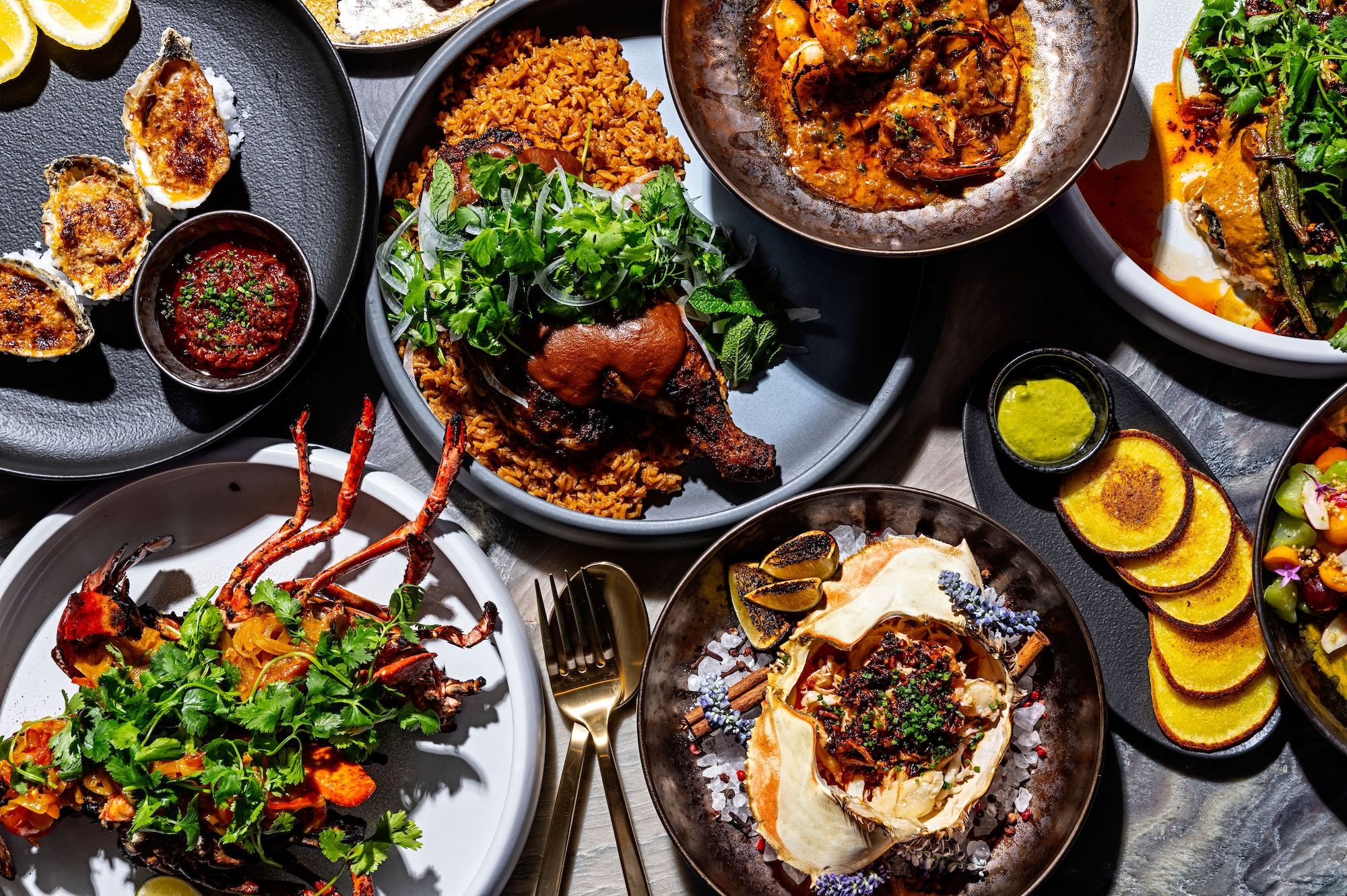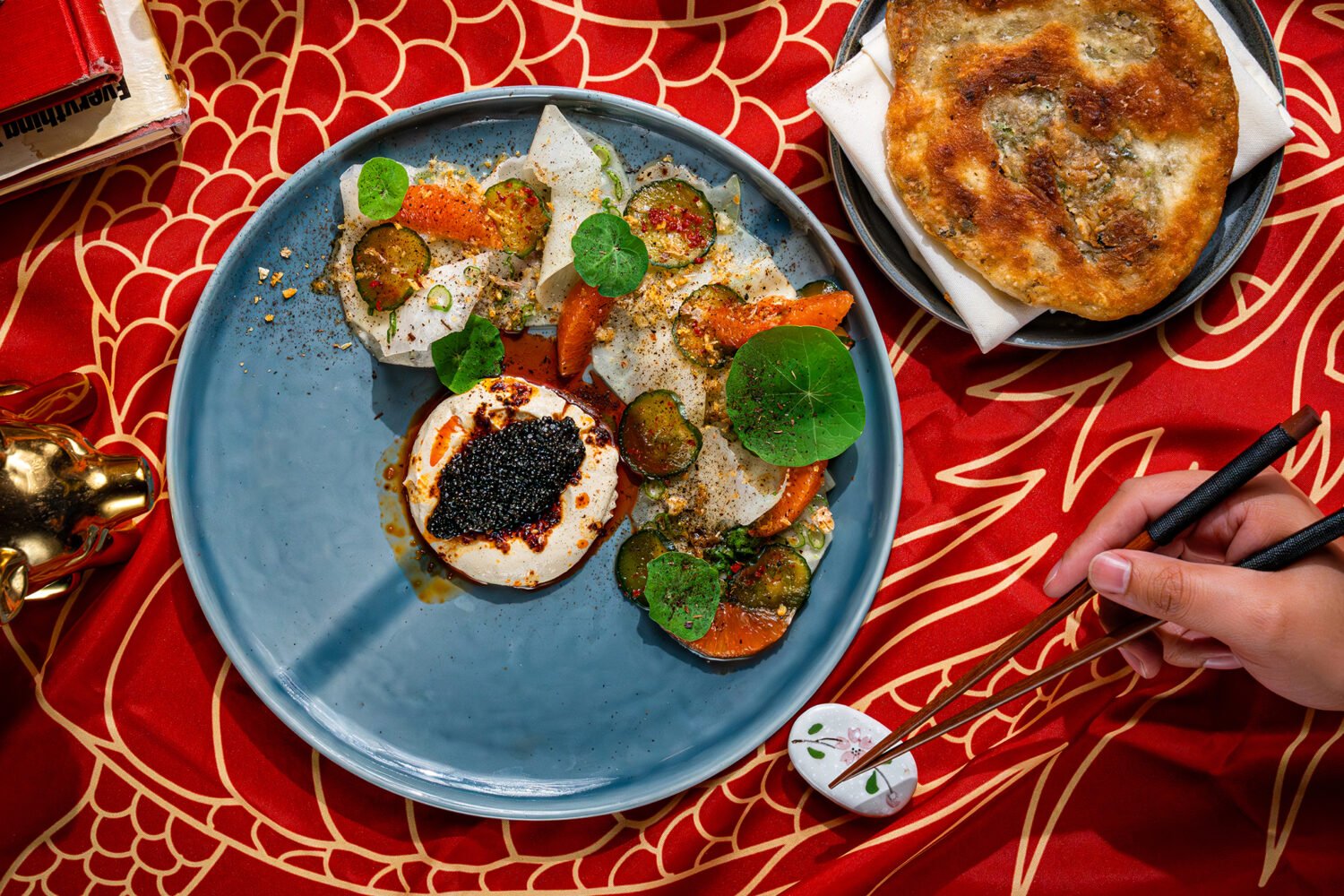Chef Kwame Onwuachi’s long-awaited Dōgon in Southwest DC is billed as an Afro-Caribbean restaurant with techniques and flavors drawn from Creole, West African, and Caribbean cuisines. But DC—its decades of African American history, its particular immigrant communities, and its restaurant institutions—was also at the heart of his menu research and development process.
Onwuachi doesn’t hit diners over the head with obvious DC references—no mambo sauce or half smokes— but embraces DC’s signature immigrant cuisines and local ingredients. “DC has always been a second home to me,” he says. “For me, the menu is broken down to just inspiration from DC and the cultures that it encapsulates.”

Onwuachi says he felt a blue crab dish was essential for a DC restaurant. Dōgon’s Hoe Crab is crab meat, elegantly served inside a crab shell, topped with a chili crunch made from shitto, a pungent Ghanaian pepper-dried fish sauce. Diners scoop up the crustacean meat with diminutive fried hoecakes—about the size and shape of the blini you’d use to eat caviar—enriched with the starch from plantains. The ají verde sauce on the side, Onwuachi says, is a nod to DC: it’s essentially the green dip you’ll find at dozens of Peruvian rotisserie chicken takeout spots around the city.

Chicken and Rice sounds simple, but the version at Dōgon spans East and West Africa. Onwuachi describes it as “a celebration of Ethiopia through a West African lens.” The roasted half chicken, inspired by doro wat, is seasoned with Ethiopian berbere spice and topped with a sauce made from misir (Ethiopian lentils). “You can’t talk about DC without talking about Ethiopian culture,” Onwuachi says. “DC has the largest population of Ethiopians outside of Ethiopia.” But the chicken sits atop a dish Onwuachi has been cooking for years: Nigerian-style jollof rice.

Ben’s Bowl, a special currently running at the restaurant, is the most direct reference to DC culinary tradition. Onwuachi asked 90-year-old Virginia Ali, the owner of Ben’s Chili Bowl, how to honor her late husband Ben with a dish at Dōgon. The resulting idea went back to the legendary restaurateur’s Indo-Caribbean roots: crispy lamb, coated in curry spices, accompanied by a chickpea-potato puree. “A lot of people don’t know Ben was actually Trinidadian,” Onwuachi says. “This is a bowl that he would actually eat.”

Dōgon’s Grilled Wagyu Short Rib is basically suya galbi— Korean-Nigerian. The cut of grilled beef and the way it’s plated—alongside pickled radish, fiery chili jam, and leaves of lettuce to make wraps—is a riff on the galbi served at the Korean barbecue restaurants Onwuachi loves to visit in the DMV. But fundamentally, he sees it as a version of another dish close to his heart: suya, the style of grilled meat served on street corners all over Nigeria. “It’s suya at the end of the day,” Onwuachi says. “I always have a suya variation on the menu.”


















